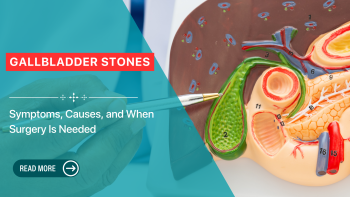Urological health is a critical aspect of
overall well-being for women, yet it often goes unnoticed until a problem
arises. This blog will explore common urological issues that affect women, how
to address them, and the specialized care available at Link Hospital in Gwalior
to ensure optimal urological health.
Urological Health in
Women
What is
Urological Health?
Urological health refers to the proper
functioning of the urinary system, including the kidneys, ureters, bladder, and
urethra. In women, urological health also intersects with reproductive health,
making it a complex and essential area of focus.
Why is
Urological Health Important for Women?
Urological health is vital for maintaining
the body's balance of fluids and electrolytes, removing waste, and ensuring
comfort in daily life. Issues in the urinary system can lead to discomfort,
infections, and more severe health problems if left untreated.
Common Urological
Issues in Women
1. Urinary
Tract Infections (UTIs)
Overview:
Urinary tract infections are one of the most common urological issues women
face. They occur when bacteria enter the urinary tract, leading to symptoms
such as burning during urination, frequent urges to urinate, and cloudy or
foul-smelling urine.
Causes:
UTIs are often caused by bacteria from the gastrointestinal tract entering the
urethra. Factors such as sexual activity, certain types of birth control, and
menopause can increase the risk.
Prevention and Treatment: Drinking plenty of water, practising good hygiene, and urinating after intercourse can help prevent UTIs. If an infection occurs, it is typically treated with antibiotics. At Link Hospital, our urology specialists provide comprehensive care, including accurate diagnosis and effective treatment options to manage and prevent recurring UTIs.
2.
Overactive Bladder (OAB)
Overview:
Overactive bladder is a condition characterized by a sudden, intense urge to
urinate, often accompanied by increased frequency of urination and, in some
cases, urinary incontinence.
Causes:
OAB can result from various factors, including ageing, neurological conditions,
and bladder irritation. It can significantly impact a woman’s quality of life,
leading to anxiety and social withdrawal.
Management
and Treatment: Lifestyle changes, such as reducing caffeine and alcohol
intake, pelvic floor exercises, and bladder training, can help manage OAB. In
more severe cases, medications or nerve stimulation therapies may be
recommended. Link Hospital offers specialized treatment plans tailored to each
patient’s needs, ensuring effective management of OAB.
3. Urinary
Incontinence
Overview:
Urinary incontinence is the involuntary leakage of urine. It can occur during
activities such as coughing, sneezing, or exercising (stress incontinence) or
as a sudden, uncontrollable urge to urinate (urge incontinence).
Causes:
Incontinence can be caused by weakened pelvic floor muscles, pregnancy,
childbirth, hormonal changes during menopause, or neurological conditions.
Treatment
Options: Treatment for urinary incontinence may include pelvic floor muscle
exercises (Kegels), lifestyle modifications, medications, or surgical
interventions. At Link Hospital, our urology experts work closely with patients
to develop personalized treatment plans that address the underlying causes of
incontinence and restore confidence and control.
4.
Interstitial Cystitis (IC)
Overview:
Interstitial cystitis, also known as painful bladder syndrome, is a chronic
condition that causes bladder pressure, bladder pain, and sometimes pelvic
pain. The symptoms can range from mild discomfort to severe pain.
Causes:
The exact cause of IC is unknown, but it may be linked to a defect in the
bladder lining, autoimmune disorders, or an allergic reaction.
Management
and Treatment: Managing IC often involves a combination of lifestyle
changes, dietary modifications, bladder training, and medications to reduce
symptoms. In severe cases, surgical options may be considered. Link Hospital
provides a multidisciplinary approach to IC management, combining urological
expertise with supportive care to improve patient’s quality of life.
5. Pelvic
Organ Prolapse
Overview:
Pelvic organ prolapse occurs when the muscles and tissues supporting the pelvic
organs weaken, allowing one or more of the pelvic organs to drop (prolapse)
from their normal position. This condition can affect the bladder, uterus, or
rectum.
Causes:
Pelvic organ prolapse is often associated with childbirth, ageing, obesity, and
chronic straining due to constipation or heavy lifting.
Treatment
Options: Treatment can range from lifestyle changes and pelvic floor
exercises to the use of pessaries (devices inserted into the vagina to support
the organs) or surgical intervention. At Link Hospital, we offer advanced
diagnostic and surgical options to effectively treat pelvic organ prolapse,
helping women regain their comfort and confidence.
How Link Hospital
Supports Urological Health in Women
At Link Hospital in Gwalior, we understand
the unique urological health needs of women and are committed to providing
comprehensive, compassionate care. Our team of experienced urologists and
healthcare professionals work together to offer the latest treatments and
personalized care plans.
Advanced
Diagnostic Services
We use cutting-edge diagnostic tools to
accurately assess urological conditions, ensuring that each patient receives a
precise diagnosis and an effective treatment plan. Our facility is equipped
with the latest technology to provide the best possible care.
Personalized
Treatment Plans
We believe that every woman deserves care
tailored to her specific needs. Our urologists take the time to understand each
patient’s health history and lifestyle, creating customized treatment plans
that address both the symptoms and underlying causes of urological issues.
Comprehensive
Support Services
Beyond medical treatment, we offer a range
of support services, including nutritional counselling, physical therapy, and
mental health support. We aim to provide holistic care that addresses all
aspects of our patients’ well-being.
Conclusion
Urological health is a vital component of
overall wellness for women. Understanding common urological issues and how to
address them can help you maintain a healthy urinary system and improve your
quality of life. If you’re experiencing urological symptoms, don’t hesitate to
seek care.
At Link Hospital, we are dedicated to
providing top-quality urological care in Gwalior, utilizing the latest
technology and personalized treatment plans to help you achieve optimal health. Book an Appointment to Consult with the Best Urologist in Gwalior Dr Neeraj Gupta. Trust us to be your partner in maintaining and improving your urological
health.











